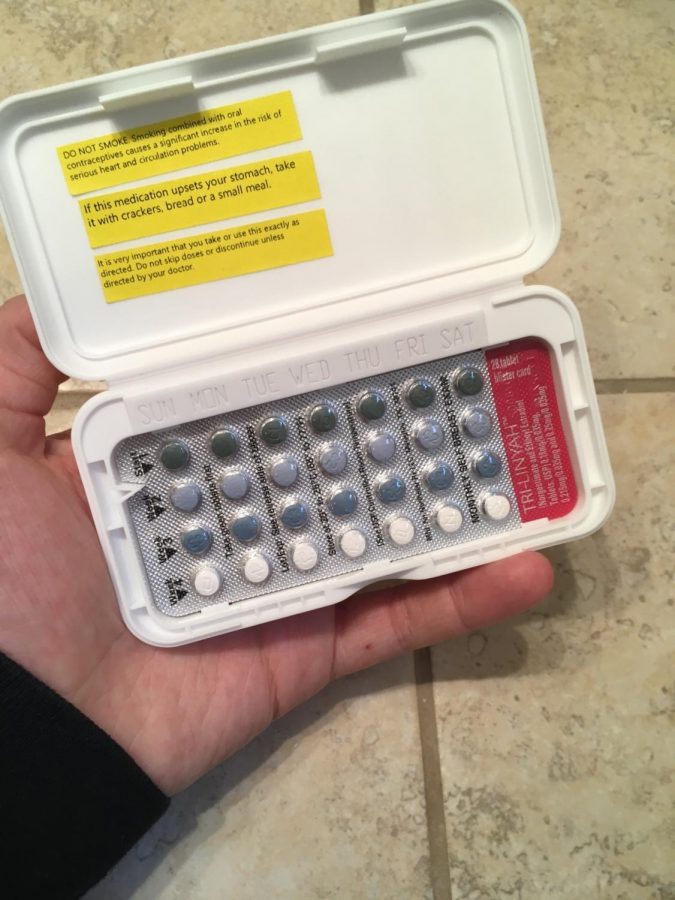The Contraceptive Perspective
TTSD holds listening sessions over proposal to offer access to contraceptives
February 14, 2018
Tigard High School has recently opened a conversation regarding access to contraceptives to students. The proposal states that it would allow the school based health centers to prescribe contraceptives to students, both at Tigard High School and Tualatin High School. The proposal was introduced by the district’s community relations director, Susan Stark Haydon, at the board meeting on Jan. 8. The proposal outlines a five point program in which students could receive contraceptives. The program states that students would be able to learn about sexual and reproductive health and get condoms, but the main goal of the proposal was opening access to options for birth control at the SBHC.
At the listening session held at Tigard on Jan. 23, the school board listened to statements from students and parents, as well as community members, about their opinions on the issue. Students of THS and TuHS attended and spoke at the meeting. The School District board, consisting of five females and one male, district superintendent Ernie Brown, applauded the students presence and professionalism at the meeting.
“This is an also issue of gender equality, as well as class equality,” ASB vice president Sierra Kruse said at the meeting. “While my male peers can go to any Walgreens and get condoms, that option is not necessarily available for females. For some reason female sexual health is criticized while male sexual health is widely accessible, and I think school should be the place where we start dismantling that.”
Dozens of parents, health center employees, and community members spoke in favor of offering contraceptives. Not one speaker publicly expressed opposition to providing contraceptives at the health center. Arguments to offer contraceptives included the comparison that teaching teens about safe sex and reproductive health and not providing contraceptives was like giving teens a car without a seatbelt and hoping they don’t drive. Other arguments in favor of providing contraceptives included statements about how inconvenient it is to go to the Beaverton Planned Parenthood (a 45-minute bus ride) for teens, and many called it “uncomfortable” to talk about birth control and other contraceptives to lifelong family physicians.
The reaction for many students hearing about the proposal was positive. “I think it should be offered at school because it should be available to everyone no matter their income,” sophomore Ellie Noyes said. “Some people don’t have the money to get them, and that shouldn’t stop them from safely being safe.”
The debate around schools providing contraceptives has been going on for years. The Tigard-Tualatin School District has had the topic brought up in 2012 as well. It did not pass in 2012. Data used in the argument for contraceptives in 2012 was from 2007-2008 and found that between those years, the Tigard Tualatin School District had 274 teen pregnancies, and 74 percent of 11th graders reported that they were sexually active. Recent data, from 2014-2016 finds that there were around 1,031 recorded teen pregnancies in Washington County during that period.
Stacy Cross is CEO of Planned Parenthood Mar Monte, the nation’s largest Planned Parenthood affiliate. Cross previously worked as CEO of Planned Parenthood Columbia-Willamette, which oversees the Beaverton clinic. She was supportive of the districts move to offer contraceptives to students. “If we can decrease unintended pregnancies in a way that’s safe and affordable, why shouldn’t we want to do that?” she said. “[Offering contraceptives] is the most effective way to help students be responsible and protect themselves.” Cross mentioned that getting birth control information from a trusted, licensed provider is a great chance to get the message across and have the tough conversation that may be tough for some teens. “Of course we want to encourage all kids to talk to their parents about these kind of decisions. But lots of teenagers don’t feel there are any adults they can trust to talk to about sensitive issues,” she added. “If they know there is a safe, confidential place they can go to get accurate information, that’s where we want them to go.”
The school board is holding its next listening on at 6:30 p.m. on Feb. 20 in the Tualatin High School library. The issue of whether or not to provide contraceptives will also be discussed at the board meeting on Feb. 12. The board is expected to meet and vote on this issue at their meeting on Feb. 26.










